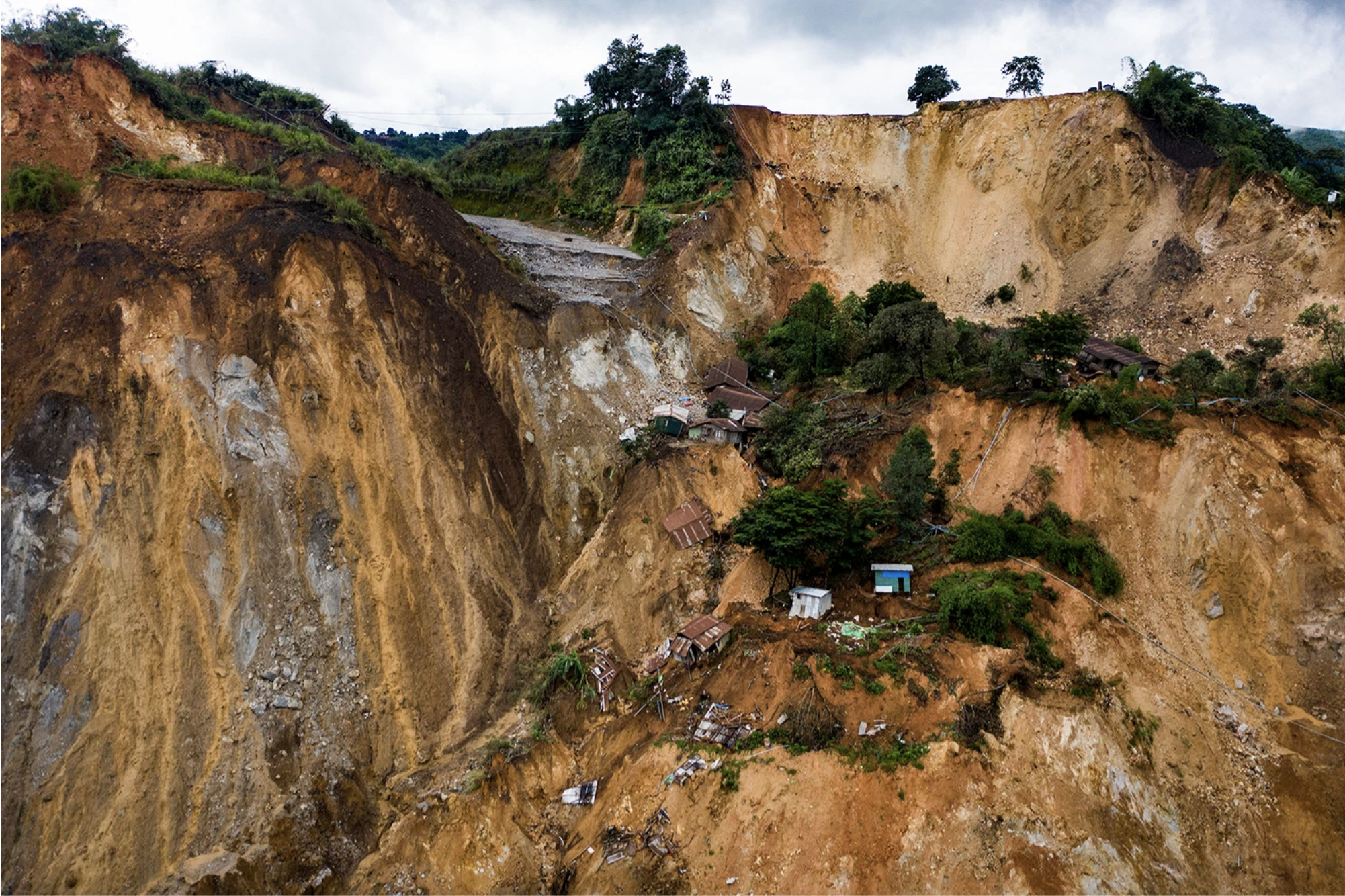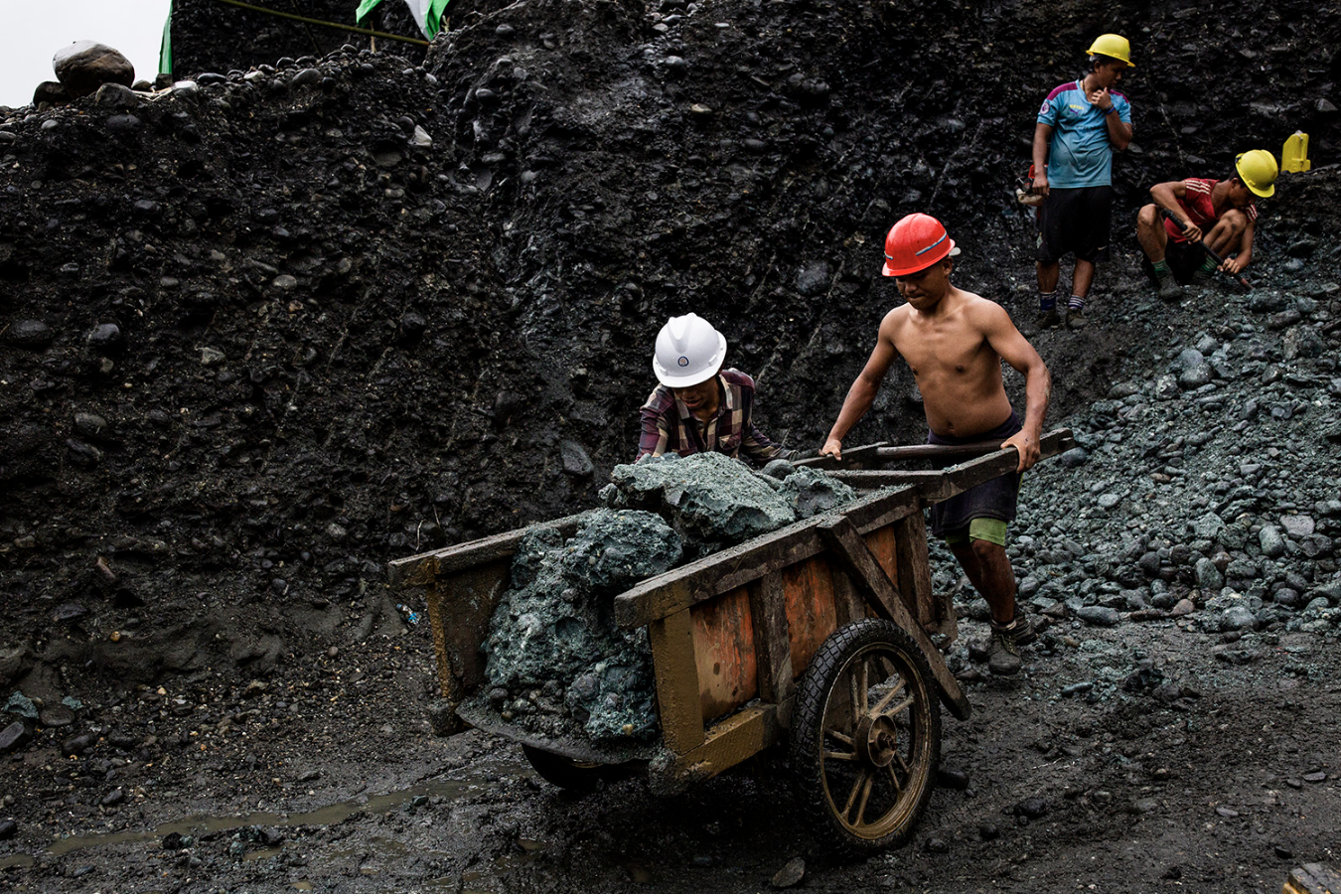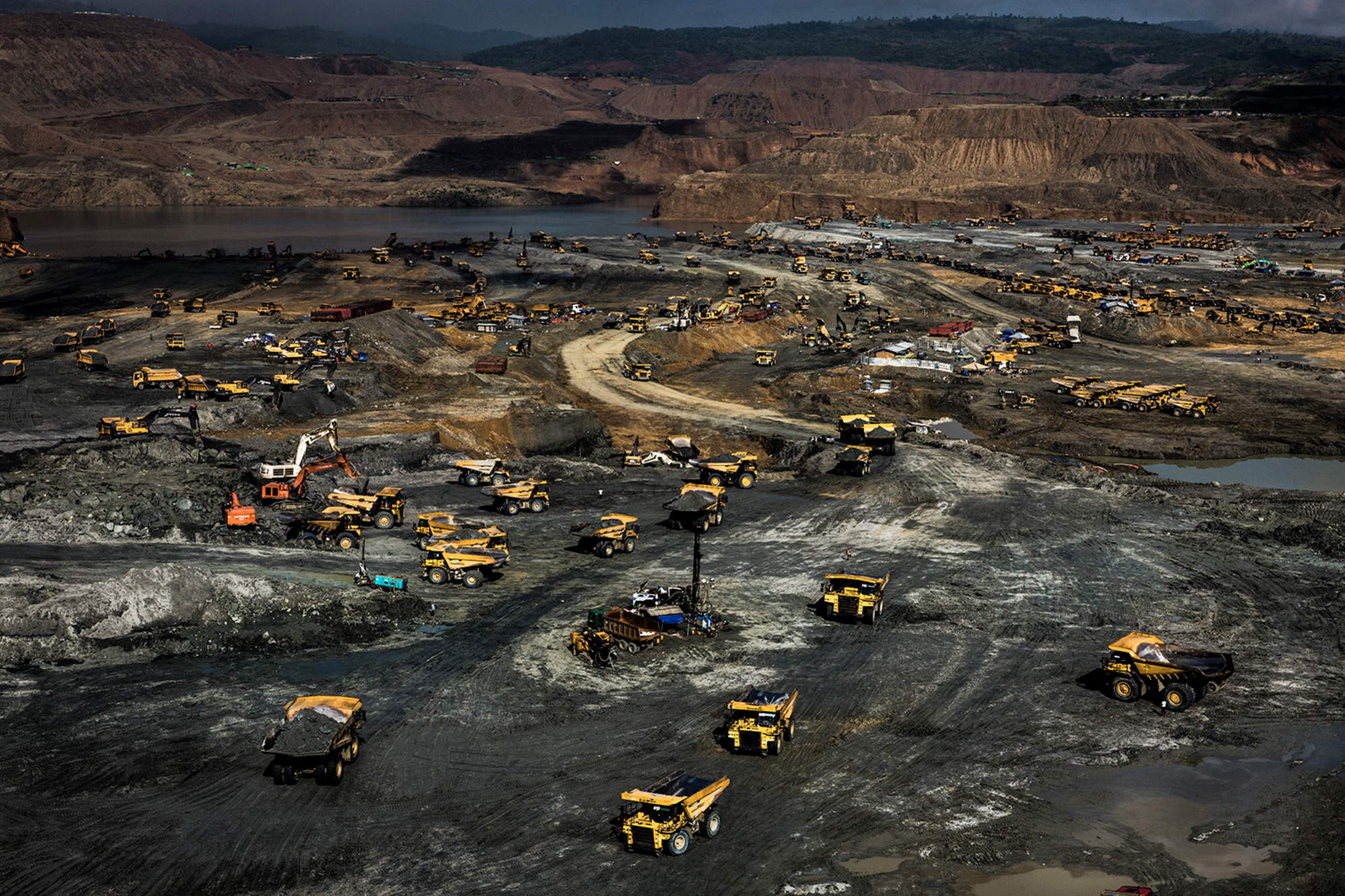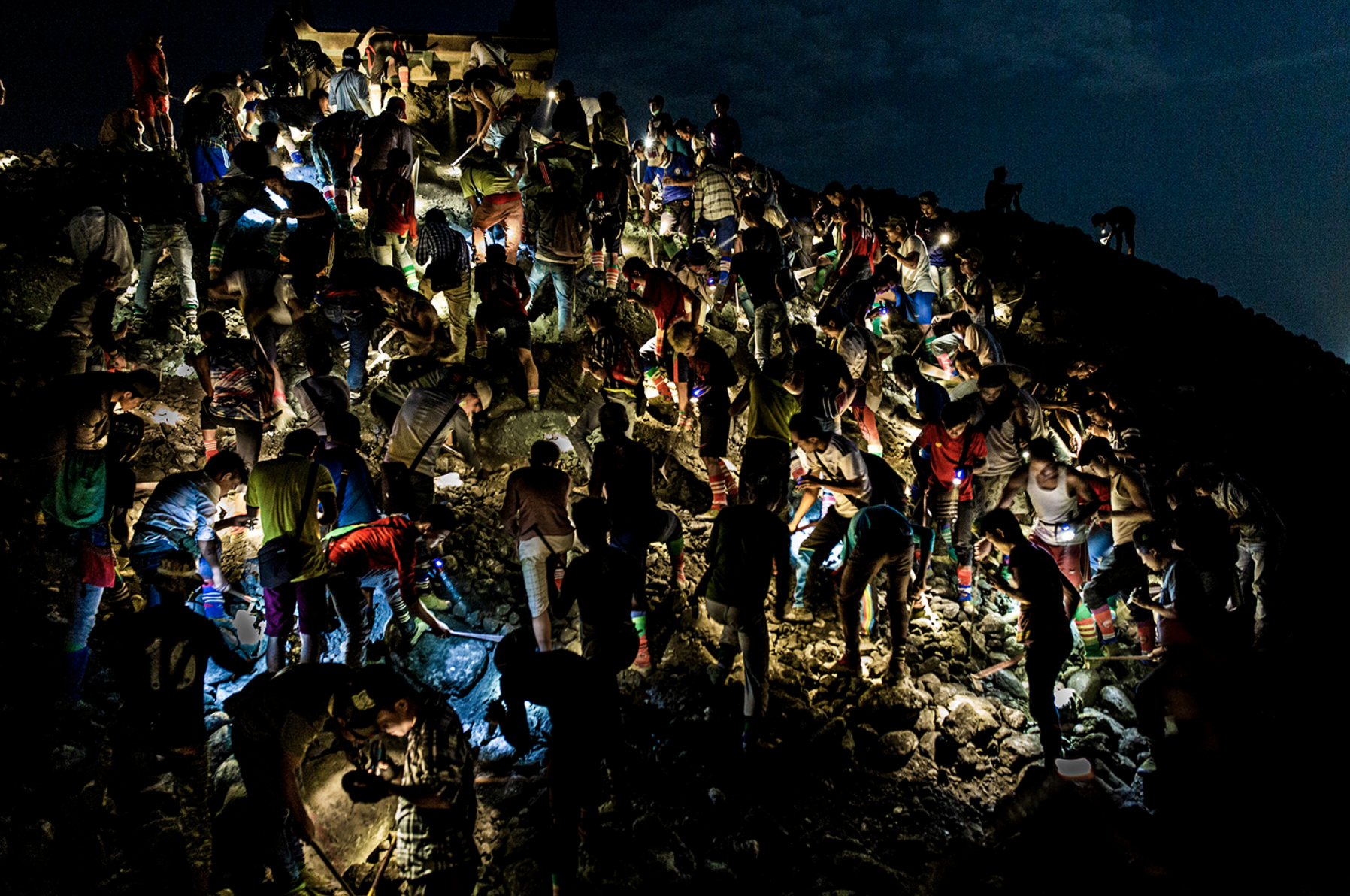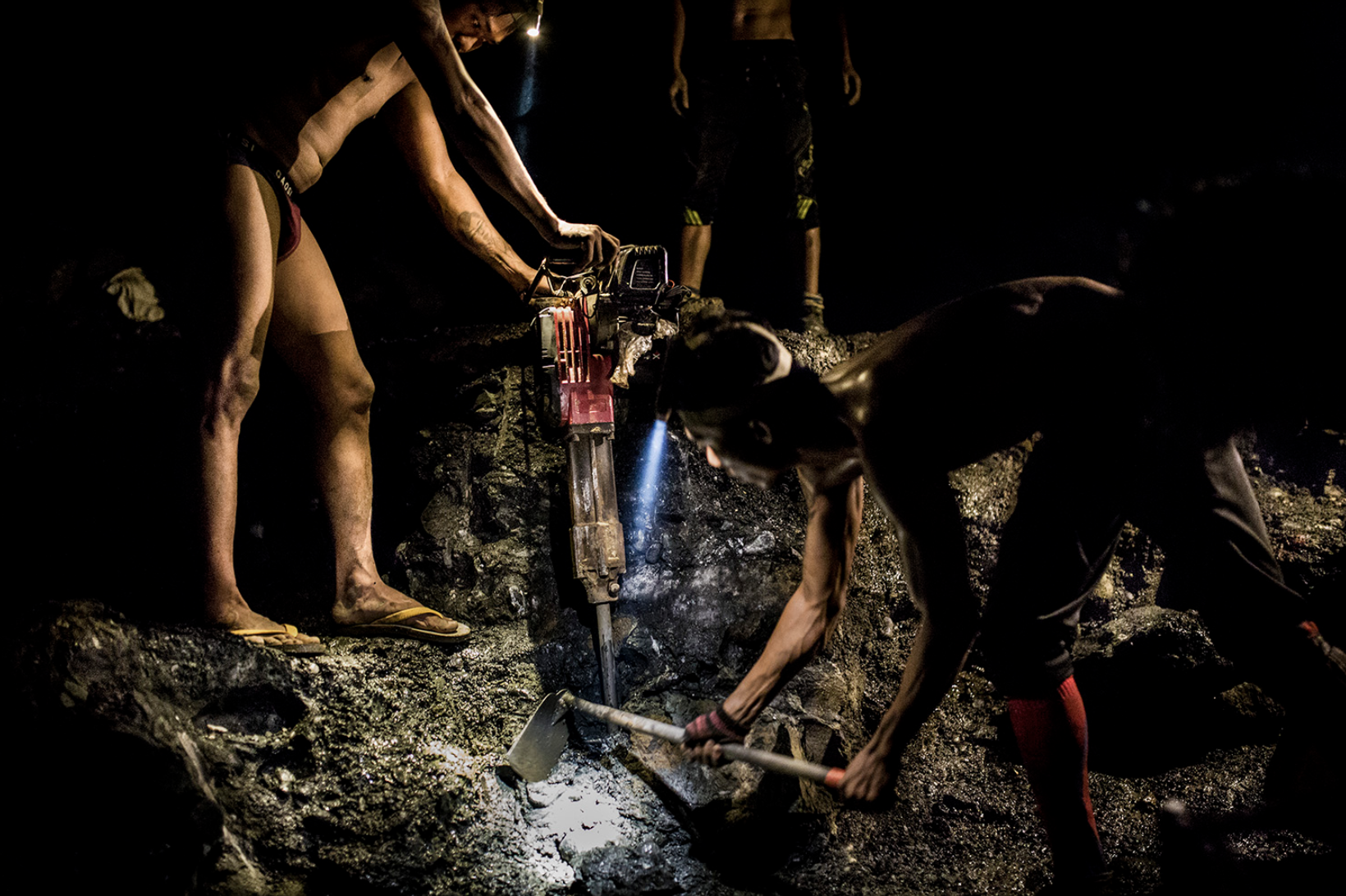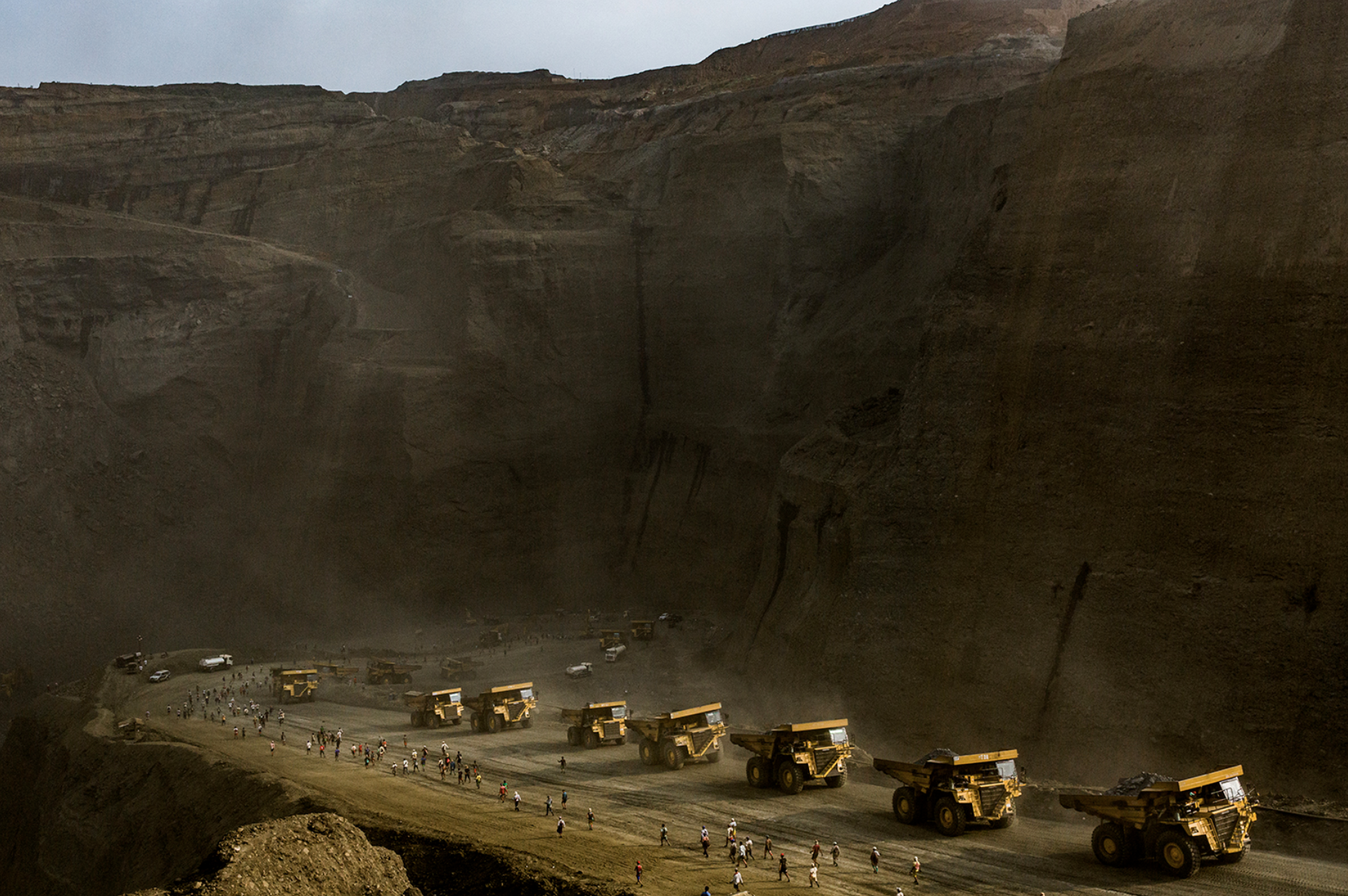YANGON, Myanmar—On July 2, a landslide in the jade mines of the Hpakant region in Myanmar’s Kachin state claimed around 200 lives. Myanmar is the world’s largest single source of jade, most of which comes from Hpakant, and its extraction comes at a high human cost. While the July 2 disaster was the deadliest on record, fatal incidents occur annually.
Each one brings renewed calls from rights groups and transparency advocates to reform Myanmar’s jade industry, which is dominated by powerful military generals, military-linked conglomerates, and ethnic armed organizations, and is plagued by scant regulation. Shortly after the National League for Democracy (NLD)—the party of Aung San Suu Kyi, now the country’s civilian leader—won national elections in November 2015, it pledged to tighten its enforcement of safety regulations in the industry.
For many, the latest disaster is a symptom of the government’s empty promises and failed accountability. The landslide in Hpakant compounds a growing list of affronts for the Kachin ethnic group during the NLD’s term, echoing grievances from when the country was under total military rule. Policies that place land and resource management in the hands of the central government have long disenfranchised ethnic minorities, contributing to decades of civil war in Myanmar’s borderlands.
During its 2015 election campaign, the NLD vowed to work toward peace between Myanmar’s ethnic armed organizations, including the Kachin Independence Organization (KIO), and the Myanmar military, known as the Tatmadaw. The KIO is one of numerous ethnic armed organizations that has sought political autonomy in Myanmar—and with it the ability to manage natural resources—since the country gained independence from Britain in 1948. More than 100,000 Kachin have been displaced by conflict since a 17-year cease-fire collapsed in 2011.
When the NLD came to power, many Kachin and other ethnic minorities were optimistic that steps toward decentralization would follow and that ethnic minorities would gain a greater voice in decisions affecting them, including more equitable access to resource wealth in their states. But the NLD is nearing the end of its term, with general elections on Nov. 8, and the government has not meaningfully addressed land and resource management. Meanwhile, fighting has intensified on multiple fronts.
With disillusionment mounting among ethnic minorities, the NLD faces an uphill battle to repeat its resounding 2015 victory in Myanmar’s seven ethnic minority states. “The NLD failed us miserably,” San Htoi, the joint general secretary of the Kachin Women’s Association Thailand, told Foreign Policy, referring to the lack of progress on ethnic representation and human rights. “We have seen enough.”
For many Kachin, the jade-mining disaster last month served as another dark reminder of the NLD’s lack of serious action on long-overdue reforms, adding to existing feelings of disenchantment with the party.
“We don’t think the [current] government will listen to us or take serious action even if we give recommendations” regarding jade-mining reform, said Htingnan Ja Naw, the joint deputy secretary of the Kachin National Social and Development Foundation in Hpakant. “We will only vote for a government that can protect and serve the lives, well-being, livelihoods, and health of the local people.”
The transition of Kachin’s jade mines began in the 1990s, when the Tatmadaw took control of the area from the KIO and state-licensed companies pushed out small-scale mining operations run mostly by local Kachin. Heavy machinery followed, and the Ministry of Mines set three- to five-year limits on permit duration that prompted a rush to extract.
Estimates for the value of Kachin’s jade industry vary widely. In 2014, when low production rates and rising prices of jade exports contributed to a peak year for the industry, Global Witness estimates that profits were worth over $30 billion, while Open Data: Myanmar Jade calculated the value at closer to $6 billion. Most of Kachin’s jade is sold illicitly to China, and the value of legal sales is often underreported to minimize tax obligations.
Little of that revenue reaches Kachin. Myanmar’s 2008 constitution mandates that the central government holds claim to the country’s land and natural resources, and maintains the authority to decide how revenue will be collected and disbursed. Military-run conglomerates claim some of the largest concessions. The state-owned Myanmar Gems Enterprise is both an active player in the industry and tied to licensing, regulating, and collecting tax revenues on jade mining.
Myanmar signed onto a global Extractive Industries Transparency Initiative in 2014, but watchdog groups have voiced concerns with the pace of progress under the NLD. The government began publishing information on the beneficial ownership of registered extractive corporations in December 2019, but it has struggled to enforce company compliance with data disclosure. A Gemstone Law passed in 2019 did not mandate a vetting process to exclude companies guilty of environmental damage, human rights abuses, or illegal activities.
While those at the top of Kachin’s jade industry profit enormously, most of the landslide victims are among approximately 300,000 unlicensed freelance miners sifting through piles of discarded material, known as tailings, and searching for jade on expired company sites. In the face of resounding calls for reform, the government’s response to the July 2 landslide has again drawn criticism, in part because its investigation committee included one appointee who is a direct shareholder in the industry through a military conglomerate.
Although the government offered compensation to victims’ families, it deflected the blame for the conditions that led to their deaths. Myanmar’s minister of natural resources and environmental conservation, who chaired the investigation committee, said that the victims’ greed led to their deaths, while Aung San Suu Kyi highlighted that most were working illegally and emphasized the need to create legal work opportunities.
“These statements are not good to hear for people who live in Hpakant or who lost their family members,” Gam Maw, a Hpakant native who works as a freelance miner, told Foreign Policy. “Neither companies nor governments are taking responsibility, and that is why landslides are happening.”
The situation in Kachin’s jade mines is just one example of how central government control over land and natural resources has continued under the NLD and at times expanded concurrently with formal peace negotiations. As in other parts of the country, a sense of dispossession has left bitterness among many Kachin that will be hard to reconcile in the coming elections.
In 2018, the military completed its takeover of much of Kachin state’s lucrative amber- and gold-mining region from the KIO. Airstrikes displaced thousands, and the government initially blocked humanitarian access or safe passage for displaced civilians. Chinese-backed banana plantations have encroached on many villagers’ farmland. Locals have also been displaced without compensation under a Belt and Road Initiative scheme to construct an industrial zone, while they’re largely left in the dark about its details.
Among the biggest concerns for Kachin ahead of the elections, however, may be the deadlocked peace process. Since early 2019, momentum to close camps for internally displaced persons has accelerated bilateral peace talks between the Tatmadaw and KIO, but the Tatmadaw’s continued small-scale attacks, including during a unilateral cease-fire due to the coronavirus pandemic, have done little to foster trust. The next round of union-level peace talks—the last before the general election—is scheduled for Aug. 19-21. But the government declined to include the Arakan Army, a rebel force in the borderlands state of Rakhine, after which its allies including the KIO withdrew their participation.
By-elections in 2018 showed a significant decline in the NLD’s popularity among ethnic minorities, and the party conceded that it needed to do more to engage minority voters. But many feel that it hasn’t followed through in practice, including its approach to the 2020 elections. The NLD formed a committee in late 2019 to engage with ethnic political parties, but it has since stated it will contest all available constituencies and not make alliances with ethnic parties.
While military appointees are allocated 25 percent of seats in Myanmar’s parliament, the remaining parliamentarians are elected. In 2015, 55 ethnic parties contested the general elections, in which the NLD won 59 percent of seats, and ethnic parties less than 9 percent. This time around, smaller parties competing for the same constituents within ethnic groups have merged and are rapidly gaining momentum. At the national level, several ethnic parties have formed a coalition board, announcing goals of forming a federal union, achieving self-determination, and guaranteeing equal rights.
Despite a sense of optimism among ethnic parties, some have voiced concerns that voter registration policies may create a formidable obstacle to increasing their representation in parliament. According to existing policies, migrant workers in ethnic states have the right to vote in a location if they have been working there for 90 days, while ethnic minority states have seen influxes of migrants—largely from the ethnic Bamar majority.
Areas under ethnic armed organization control, where nearly 40,000 internally displaced Kachin live, or considered insecure are likely to be excluded from voter registration, as happened in 2015. In parts of Rakhine state, where the NLD fared poorly in 2015, the government announced it will postpone elections if the military declares the area unsafe. Rakhine state has been racked by armed conflict between the Arakan Army and the Tatmadaw since late 2018, causing mass displacement and human rights violations.
Even if ethnic parties make significant gains in November and the NLD falls short of winning a majority of elected seats in parliament, ethnic parties face major barriers to significant political advancement. Myanmar’s president is selected by members of parliament in a first-past-the-post race in which the candidate with the most votes wins. With the president responsible for appointing the cabinet, the chief ministers of state, and regional governments, the struggle for ethnic parties to see meaningful representation will continue.
In Kachin, several parties merged in late 2018 to form the Kachin State People’s Party, which is contesting all eligible constituencies in the state. The party has developed a natural resource management and revenue-sharing policy, its spokesperson Daw Doi Bu told Foreign Policy. The party will also promote dialogue regarding the peace process, with a focus on decentralization and increasing ethnic Kachin’s political representation.
But Doi Bu expressed concern that regardless of how many seats the party wins, significant political advancement for those living in Kachin state will require constitutional reform. Doi Bu said her party will seek to reintroduce a bill allowing chief ministers—the highest-level officials in states and regions—to be elected and advocate for constitutional reform to increase the legislative authority of state parliaments.
A federal union built upon the principles of equal rights for ethnic groups, self-determination, and resource-sharing remains a distant hope. Time is running out for the NLD to make good on its pledge to make peace a priority. For those in Kachin state and beyond, the government’s response to the recent landslide is yet another squandered opportunity to salvage broken trust among disenfranchised ethnic minorities.
If the ruling party is seriously committed to engaging with minorities ahead of November’s elections, holding itself accountable for the deaths in Hpakant and taking bold steps toward reform would be a good place to start.
